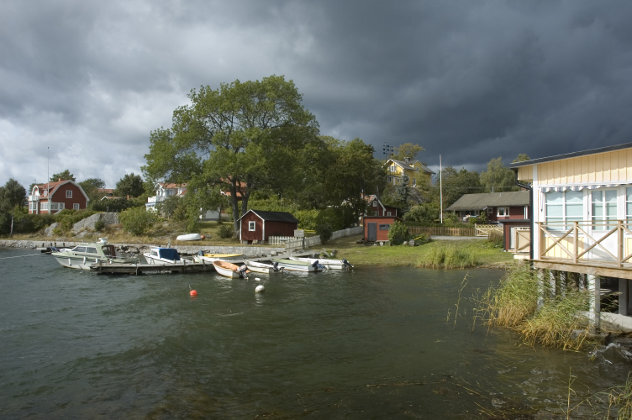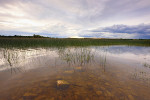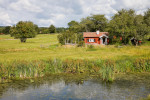The disadvantages of owning a holiday home in Sweden
Lennart Beck, Tuesday, 25 July 2023

Having your own vacation home in Sweden may seem like a dream at first glance: untouched nature, peace, and relaxation. However, there are also a number of disadvantages that should be taken into account when deciding on such a house. In this article, we will address some of these points.
In summary, there are many factors to consider when deciding to buy or not to buy a vacation home in Sweden. It is important to carefully weigh the pros and cons to make the best choice for your personal needs and preferences.

Having your own vacation home in Sweden may seem like a dream at first glance: untouched nature, peace, and relaxation. However, there are also a number of disadvantages that should be taken into account when deciding on such a house. In this article, we will address some of these points.
- Difficult Sale in the Countryside: The sale of homes in rural areas of Sweden often poses a challenge, as the population increasingly moves to the larger cities. This can result in a lower resale value.
- Maintenance and Care: Owning a vacation home in Sweden also means that you are responsible for maintaining buildings and gardens. This can mean that part of the holiday has to be spent on the upkeep of the house.
- Heating Costs in Winter: If the house has central heating, it must continue to run on a low setting during winter to avoid frost damage. This causes additional costs for fuel and maintenance. Alternatively, frost protection measures may be required throughout the house.
- Limited Vacation Options: Since you need to regularly visit the vacation home, you consume valuable vacation days and have fewer opportunities to explore other travel destinations.
- Wooden Houses Require More Care: Wooden houses are widespread in Sweden, but they require more maintenance and care compared to stone houses.
- Travel Time: Depending on the distance and means of transport, you need 2-4 days of travel time to get to your vacation home in Sweden. This often makes shorter vacations of less than 10 days unattractive.
- Travel Costs: Traveling to Sweden can incur substantial costs due to the bridges or ferry connections that need to be crossed.
- Climate: Although the climate in Sweden is generally better in summer than in Germany, it can also be cold and rainy. This can affect holiday enjoyment and lead to additional maintenance tasks.
- Language Barrier: Although many Swedes speak fluent English, there can be language barriers in some rural areas and when communicating with tradesmen or service providers.
- Taxes and Levies: Additional taxes and fees may apply when buying and owning a vacation home in Sweden that should be included in the calculation. These include, for example, the property transfer tax, property tax, and annual sewage fees.
- Limited Infrastructure: In rural areas of Sweden, the infrastructure can be limited. This means there are fewer shops, restaurants, and public transportation. This can affect accessibility and opportunities for activities in the surrounding area.
- Loneliness and Social Isolation: A vacation home in a remote area of Sweden can provide peace and relaxation, but it can also lead to a feeling of loneliness and social isolation, especially for those who stay in the house for a longer period of time.
- Limited Medical Care: Access to medical facilities and specialists can be limited in remote areas. This can be particularly problematic for older people or people with special health needs.
- Higher Insurance Costs: Due to the remote location and weather conditions, the insurance costs for a vacation home in Sweden may be higher than in other countries. This should be considered in the calculation of the total costs.
In summary, there are many factors to consider when deciding to buy or not to buy a vacation home in Sweden. It is important to carefully weigh the pros and cons to make the best choice for your personal needs and preferences.

Search for houses and real estate in Sweden. Holiday homes and farms for sale in Sweden : Skåne, Blekinge, Halland, Kronoberg, Kalmar and Jönköping.
 Find your dream holiday home in Sweden: Discover the best regions like Småland, Archipelago, Dalarna, Lapland & Skåne. Learn about the benefits of each
region, things to do and tips on the buying process. Get inspired and find the perfect location for your holiday home in Sweden!
Find your dream holiday home in Sweden: Discover the best regions like Småland, Archipelago, Dalarna, Lapland & Skåne. Learn about the benefits of each
region, things to do and tips on the buying process. Get inspired and find the perfect location for your holiday home in Sweden!
More articles